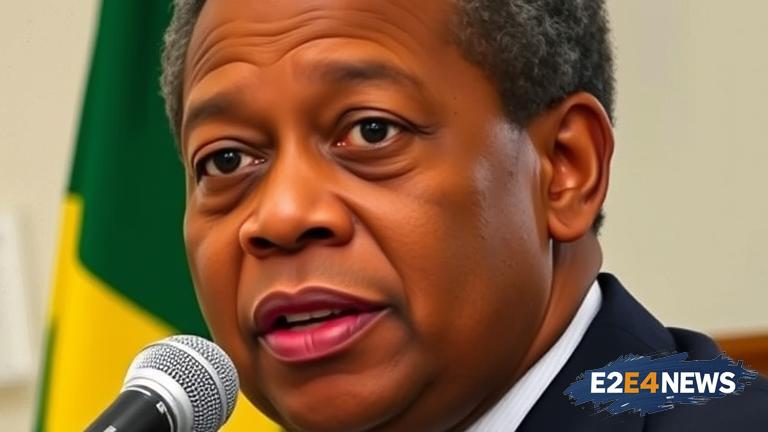In a recent development, Guyana’s Opposition Leader, Aubrey Norton, has declined to respond to queries regarding proposed judicial appointments. This move has sparked intense debate and discussion among stakeholders, with many calling for greater transparency and accountability in the country’s judiciary. The proposed appointments have been a subject of interest, with many speculating about the potential impact on the country’s legal system. Norton’s decision not to comment has been seen as a surprise, given the importance of the issue. The Opposition Leader’s stance has been met with criticism from some quarters, with many arguing that his silence is unacceptable. Others have come to his defense, stating that he is entitled to his opinion and should not be forced to comment. The proposed judicial appointments have been a topic of discussion for several weeks, with many calling for a more transparent and inclusive process. The current system has been criticized for being opaque, with many arguing that it is prone to bias and favoritism. The Guyanese government has been accused of attempting to pack the judiciary with its own appointees, a move that has been met with resistance from the opposition. The proposed appointments have also sparked concerns about the independence of the judiciary, with many arguing that the current system undermines the separation of powers. The debate has also highlighted the need for greater accountability and transparency in the appointment process. Many have called for a more merit-based system, where appointments are based on qualifications and experience rather than political connections. The issue has also sparked a wider debate about the role of the judiciary in Guyanese society, with many arguing that it is essential to ensuring the rule of law and protecting human rights. The proposed appointments have also been seen as a test of the government’s commitment to transparency and accountability. The international community has been watching the developments with interest, with many calling for Guyana to adhere to international standards of transparency and accountability. The country’s judiciary has been praised for its independence and impartiality, but the proposed appointments have raised concerns about its ability to remain independent. The Opposition Leader’s decision not to comment has been seen as a missed opportunity to provide clarity and transparency on the issue. Many have argued that his silence has only added to the speculation and uncertainty surrounding the proposed appointments. The debate is likely to continue, with many calling for greater transparency and accountability in the appointment process. The proposed judicial appointments have also sparked concerns about the potential impact on the country’s legal system, with many arguing that it could undermine the rule of law. The issue has also highlighted the need for greater public engagement and participation in the appointment process. Many have called for a more inclusive and transparent process, where the public is able to provide input and feedback on the proposed appointments. The proposed judicial appointments have also sparked a wider debate about the role of the opposition in Guyanese politics, with many arguing that it is essential to ensuring accountability and transparency. The Opposition Leader’s decision not to comment has been seen as a reflection of the challenges facing the opposition in Guyana, with many arguing that it is struggling to provide effective oversight and accountability.
